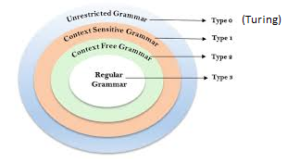
Arquivo para March 28th, 2025
Narrative, languages and orality
Taking up one of Byung-Chul Han’s words: “Narrative is the capacity of the spirit to overcome the contingency of the body”, this capacity to overcome the contingency of the body is linked not only to the memory of poetic and conative language, but also to the spiritual meanings and values that modernity has abandoned under the pretext of creating an “objective” vision (A crise da narração, Byung Chul Han, Vozes, 2023, brazilian edition).
the spirit to overcome the contingency of the body”, this capacity to overcome the contingency of the body is linked not only to the memory of poetic and conative language, but also to the spiritual meanings and values that modernity has abandoned under the pretext of creating an “objective” vision (A crise da narração, Byung Chul Han, Vozes, 2023, brazilian edition).
The telling of the stories of peoples, their cultures and religions are thus key factors in overcoming such a dramatic moment in the history of communication.
The languages developed for machines are capable of producing narratives with a set of words that are part of their vocabulary, but without the imagery of the voices that perform the storytelling, especially in oral cultures, where writing is secondary.
The dramatic text is also a genre in which acts, scenes, rubrics and speeches are presented, which is why it is part of a theatrical form or a-presentation, in the sense that the presentation is both a telling of a story and its negation, since it involves fiction, storytelling always has a present aspect, this is the meaning.
The dispute between nominalists and realists in the lower middle ages (11th to 14th centuries) ended up neglecting the importance of language, but the linguistic turn of the late 19th century brought back its importance in studies such as grammar, semiotics, etymology and, more broadly, linguistics.
The beginning of modernity is marked by the break between the metaphysical function of language and the use of objectivity as a mode of expression, but this is only one of the functions of language, the Russian linguist Roman Jacobson recalls the functions: phatic, poetic, conative and metalinguistic, in which modern codes are inserted by example: Morse, digital and quantum, where “the code explains the code itself, that is, the language explains the language itself”, and this should be the only context where the concepts of sender/receiver apply.
The linguistic turn occurs in the midst of the crisis of idealist and positivist thinking in modernity: Husserl, Heidegger, Hanna Arendt are fundamental, although they are most remembered: Noam Chomsky, Mikhail Bakhtin, Michel Foucault and Ferdinand de Saussure.
In the 1950s, Noam Chomsky wrote variations on these linguistic styles that are more technical, involve a restricted grammar and regular expressions. It is used in computer science and formal language theory.
When proclaiming texts in an oral culture, such as the Bible, it is necessary to have meaning, and in particular to make a hermeneutic of its presentation (repeat it when telling).

